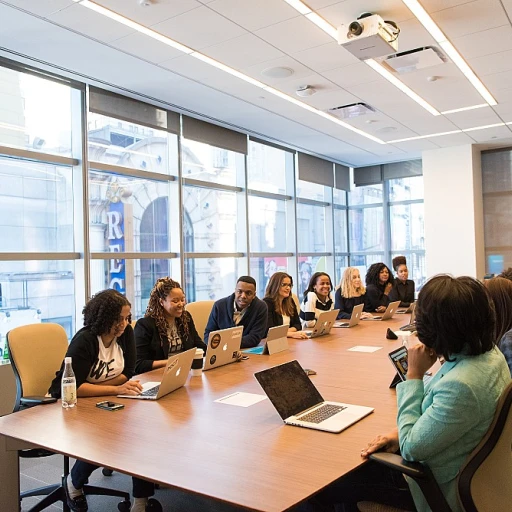
Understanding Employee Appreciation
Understanding the Importance of Employee Appreciation
Employee appreciation holds a crucial role in fostering a productive and satisfying work environment. When employees feel valued, their motivation surges, directly impacting their performance. Recognition goes beyond acknowledging the completion of tasks; it thrives on an understanding of employees' hard work and contributions. This concept is pivotal to both hiring and retaining top talent in a competitive business landscape. Incorporating appreciation into company culture can come in various forms, including gestures of gratitude and celebration. Businesses have the opportunity to use appreciation cards as a powerful tool to enhance morale within their teams. Whether it’s for a milestone like a work anniversary or just a regular appreciation day, these cards enable employers to convey genuine thanks and reinforce a positive company culture. Acknowledging team members with greeting cards, like birthday cards or holiday cards, stands as a cost-effective and personalized method to express gratitude. Acknowledgment, even with a low price tag, can deliver high returns in terms of loyalty and engagement. Effective appreciation cards need not be elaborate; they should reflect sincerity and complement other recognition strategies practiced within the company. By incorporating appreciation into day-to-day interactions, organizations can cultivate a spirit of unity and commitment among employees. Incorporating effective strategies for recognizing employees can further enhance how appreciation is expressed, ensuring that each employee feels seen and valued. Consequently, companies that choose to actively appreciate their employees tend to witness improved customer service outcomes and overall business success. As organizations seek to find the perfect balance between low costs and high returns, employing employee recognition strategies is a valuable endeavor.The Role of Appreciation Cards
Leveraging Cards as an Engagement Tool
Employee appreciation cards play a vital role in fostering employee recognition and enhancing engagement in the workplace. By providing a tangible expression of gratitude, they become an instrumental way to acknowledge team members' hard work and dedication. These cards can be employed for a variety of occasions, such as birthdays, work anniversaries, or during holiday seasons, turning routine monotony into moments of celebration and acknowledgment. Businesses often find that the price of appreciation cards is low when compared to the positive impact they have on employee morale and satisfaction. The act of giving an appreciation card is not just about the gesture, but rather, it is a well-thought-out recognition strategy that rises above low-cost digital interactions. When employees receive a card, it signals a personal touch that a simple email or message just can't match. Furthermore, greeting cards specifically designed for employee appreciation can be chosen to reflect the company's culture and values. This customization helps reinforce the sense of belonging and connection within the team. Companies can choose from a variety of designs ranging from simple thank-you notes to elaborately crafted greeting packs that include elements of surprise and gift options. This flexibility allows businesses to find the perfect fit for any occasion and individual. Incorporating holiday cards and appreciation cards during special times of the year or creating an annual appreciation day helps reaffirm the company’s commitment to its workforce. By investing time and thought into these small tokens of appreciation, employers can enhance their employee engagement strategies significantly. The role of appreciation cards cannot be underestimated, as they offer a personal touch that acknowledges an employee's contribution, ultimately boosting business productivity and strengthening customer service as well. To explore more creative ways of showing appreciation to employees, visit creative ways to celebrate staff appreciation week for actionable insights and ideas.Designing Effective Appreciation Cards
Crafting Memorable Messages
To truly make appreciation cards impactful, the design and message should resonate with employees on a personal level. It's important to reflect the company's values while also considering the specific occasion, whether it's a birthday, work anniversary, or holiday celebration. Thoughtful messages can transform a simple card into a powerful tool for connection and motivation.Selecting the Right Design
Finding the perfect design for your greeting cards can elevate the experience of appreciation. Consider using colors, imagery, and typography that align with your company culture and message. A well-designed card can leave a lasting impression and reinforce an employee's sense of belonging. Additionally, incorporating team or company branding can also remind employees of their integral role in the business.Personalization Matters
Adding a personal touch to each card makes employees feel valued and recognized for their hard work. Personalization can range from a handwritten note or a mention of specific achievements to a reflection on the employee's unique contributions to the team. These small gestures often mean the most and can significantly boost employee recognition.Balancing Cost and Quality
While it's tempting to choose cost-effective options, appreciation cards should strike a balance between price and presentation. Investing in quality cards can enhance customer service and show your commitment to valuing your team. Yet, it doesn't have to be expensive—there are plenty of options that cater to varying budgets without compromising on the message's impact. Looking for a practical guide on designing modern appreciation cards? Check out this guide on crafting the perfect welcome email for new hires. It offers insights that can also apply to creating impactful appreciation messages.Case Studies: Success Stories
Real-Life Examples of Appreciation Impact
In the realm of employee recognition, numerous companies have successfully harnessed the power of appreciation cards to enhance engagement and kindle motivation among their teams. These case studies exemplify how transformative these gestures can be when strategically implemented. One notable company embraced appreciation cards by integrating them into their holiday traditions. By distributing personalized holiday cards to their staff, they were able to acknowledge their hard work and loyalty, contributing significantly to a boost in employee morale. The result? An increase in job satisfaction and a marked improvement in overall productivity. A different business utilized birthday cards as a tool for boosting sentiment and connectivity among team members. The act of acknowledging individual birthdays with a personal note not only fostered a sense of belonging but also showed the employees that they were valued beyond their business contributions. Customer service teams, known for their demanding roles, can also greatly benefit from a well-timed appreciation card. By regularly recognizing stellar service with recognition cards, companies could see a reduction in employee turnover rates, which ultimately led to improved customer satisfaction. There has also been a rise in companies giving out employee appreciation day packs. These low-cost, high-impact gifts often consist of carefully chosen appreciation cards paired with small tokens of gratitude. Such practices help reinforce a high-performance culture, where employees feel their contributions are valued and celebrated. These examples collectively suggest that when companies choose to invest thoughtfully in appreciation initiatives, there is a pronounced and positive ripple effect that extends across team dynamics and business outcomes. Through appreciation cards, businesses have a tangible tool to foster engagement and sustain motivation among their workforce.Challenges and Solutions
Overcoming Hurdles in Employee Recognition
Implementing a successful employee appreciation program using cards and other recognition tools is not without its challenges. Understanding these can help organizations to minimize obstacles and effectively boost employee engagement.
Limited Budget: One of the primary challenges faced by companies, particularly smaller businesses, is budget constraints. While it might be tempting to choose a low-cost card option, the quality of appreciation cards should not be compromised, as they play a significant role in how the gesture is perceived. It's about finding the perfect balance between price and quality to ensure that the recognition feels genuine.
Lack of Understanding: Another common issue is a lack of understanding about what really constitutes effective employee recognition. Simply using greeting cards for occasions like birthdays or work anniversaries won't suffice in a dynamic work environment. To foster a culture of appreciation, companies need a broader strategy that celebrates hard work throughout the year and addresses individual and team achievements.
Inconsistent Implementation: Appreciation must be consistent to maintain morale and engagement. Sporadic recognition can lead to feelings of neglect among team members who may question the sincerity of the initiative. Regularly scheduled appreciation days or planned distributions of appreciation cards could enhance consistency.
Over-reliance on Cards: While cards can be a pivotal aspect of appreciation, they should not be the sole method of recognition. Including other forms of recognition, such as verbal praise or small gifts, in the appreciation pack can make the recognition more impactful and personalized.
Adapting to Changes: Businesses must remain adaptable to new trends in employee recognition. Companies are evolving, and so should the ways they express gratitude. Holiday cards and appreciation cards should reflect current sentiments and company values to stay relevant and effective.
By addressing these challenges directly, organizations can create an effective employee recognition program that not only improves employee morale but also enhances overall company performance by fostering a strong culture of appreciation.
Future Trends in Employee Appreciation
Anticipating the Evolution of Employee Appreciation
As businesses continue to evolve, so too does the landscape of employee appreciation. The future promises exciting developments, especially with the blending of traditional practices like greeting cards with digital innovations.- Incorporating Technology: Companies are likely to see an increased integration of digital tools in their appreciation efforts. Virtual cards or personalized emails during important occasions such as work anniversaries or holidays can provide instant and broad-reaching gestures of gratitude.
- Low Cost, High Impact: There's a growing trend towards creating impactful appreciation methods that don’t break the budget. Finding the perfect balance between cost (low price) and meaningful recognition will be crucial. Giving recognition cards in bulk for team members, for example, could be a cost-effective approach.
- Customizable Experiences: Personalized appreciation is set to become more prevalent. By allowing employees to choose their own appreciation gifts or cards, businesses can enhance the personal touch of their recognition efforts.
- Sustainability: Environmentally-friendly options are gaining momentum. Expect more companies to turn to eco-friendly materials for appreciation cards, aligning with broader corporate sustainability initiatives.
- Diverse Occasions: Beyond traditional events like birthdays or work anniversaries, future trends indicate a broader range of appreciation days. Recognizing employees on International Appreciation Day or during special project achievements reflects ongoing gratitude for their contributions.













